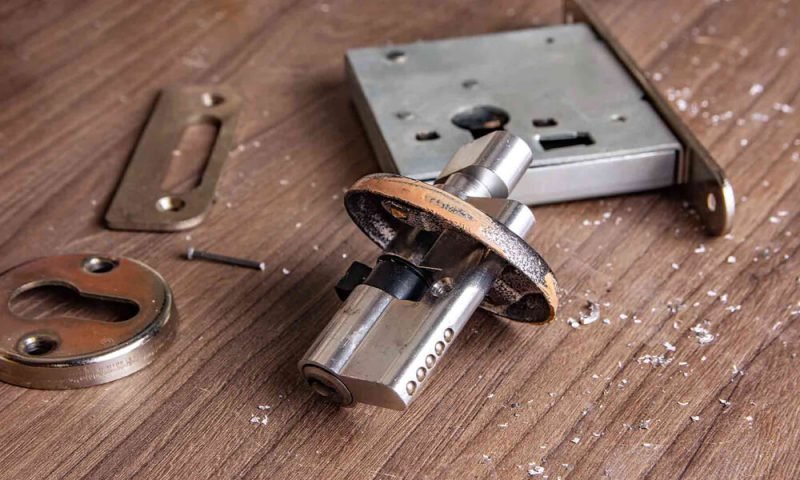
When it comes to your home security, the decision of whether to rekey or replace your locks can be a tricky one. Rekeying your locks can be a cost-effective solution to an existing security issue while replacing your locks can provide a more comprehensive solution. If you’re considering any of these options, it is important to understand both concepts so that you can make the best decision when you reach out to your professional locksmith like Keys On Wheels. Read on to learn more
What Does It Mean To Rekey A Lock
Rekeying a lock is a process of changing the internal pins inside the lock to make it work with a different key; this means the old keys will longer open the locks. Lock rekeying is often done when you move into a new home and don’t want to use the existing key or when you notice that the security of your home has been compromised. It’s also a good option if you’ve lost a key and don’t want anyone else to have access. Rekeying is generally cheaper than replacing the lock, but it’s important to understand the process and when it’s the right option for you.
When to Consider Replacing Your Locks
Replacing your locks can be a better option if your locks are damaged or if you’re looking for a higher level of security. If your locks are old and outdated, it can also be worth replacing them for a more secure option. Replacing your locks can also be an option if you’re looking for a specific style or type of locks, such as keyless entry or a more decorative appearance.
Pros of Rekeying a Lock
- Increased Security
Rekeying a lock means you’re changing the internal components of the lock, which makes it harder for someone to pick the lock. As a result, you’re increasing the security of your property.
- Cost-Effective
Rekeying a lock is much more cost-effective than replacing the entire lock. Since you’re only changing the internal components, it’s a much cheaper option.
- Quick and Easy
Rekeying a lock is a relatively quick and easy process. All you need is a key blank and a key decoder to take the necessary measurements to create a new key successfully. With the right technique, you can rekey a lock in a matter of minutes
Cons of Rekeying a Lock
- Limited Options
Depending on the type of lock you have, the options for rekeying might be limited. If the lock is older or unique, it might not be easy to find the proper components for rekeying.
- Not 100% Secure
Even though rekeying a lock increases security, it’s still not 100% secure. A skilled locks picker can pick the lock and gain access.
Pros of Replacing a Loc
- Improved Security
Replacing your lock with a new and updated model can significantly increase the security of your home or office. New locks come with better security features that can make it much harder for burglars to get in.
- Increased Home Value
Replacing a lock can also increase the value of your home. Potential buyers are often attracted to homes with high-end security features, so having a newer lock may make your home look more appealing to buyers.
- Improved Convenience
Newer locks often come with added convenience features, such as keyless entry or remote access. This can make it easier for you to get into your house and out of it.
- Aesthetics
Replacing a lock can also make your home look more inviting. This can be especially beneficial if you are trying to make your home more stylish and attractive.
- Peace of Mind
Replacing a lock can also give you peace of mind knowing that your home is secure. Not having to worry about an old, outdated lock can be a huge relief.
Cons of Replacing a Lock
- Cost
Depending on the type of lock you purchase, you can expect to pay anywhere from a few hundred to a few thousand dollars for replacing your lock.
- Labor
It can be more time-consuming and labor-intensive to replace a lock. You’ll need the right tools to remove the old lock and expertly install the new one. If you do not have the skills or tools to do it yourself, you may need to hire a professional locksmith to do the job.
Overall, both rekeying and replacing your locks improve the security of a building, but it’s important to consider the pros and cons of both options to make sure you get the right solution for your needs.









